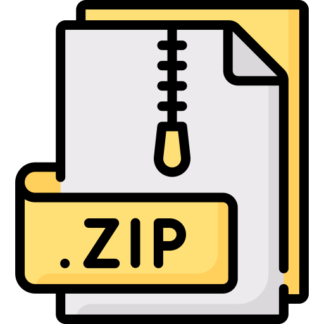Description
In this assignment you will design and implement a CCQueue class modeling a simple queue for
an online computer equipment retailer’s customer service department with many angry customers.
The data storage of the CCQueue class will supported by a doubly-linked list template class.
Please review the general submission and coding style guidelines on the website.
Doubly-Linked List Description
Doubly-linked lists are dynamic reference structures much like the singly-linked lists seen in
your lecture notes. Individual data elements are still stored within a node structure, although
nodes in doubly-linked lists now contain both a pointer to the next list element as well as another
pointer to the previous element in the list. The previous element pointer at the front of the list
and the next element pointer at the back of the list are NULL. With such a doubly-linked
structure, the list can be traversed towards the back by following the chain of next element
pointers, and traversed towards the front by following the chain of previous element pointers.
A doubly-linked list can be visualized as follows:
You must implement the DLinkedList template class to store data of any type; this includes a
Node template class implemented for you in the DLinkedList class .h file. Please refer to the
documentation in the provided dlinkedlist.h file for the class definition and functional
requirements.
ElementAt, InsertAt, RemoveAt example
Consider a linked list storing integers:
Front – 16 – 76 – 21 – 53 – back
Demonstrating 0-indexed access, ElementAt(1) returns 76. Likewise, InsertAt(81, 2)
will result in the list, where 81 now occupies index 2:
Front – 16 – 76 – 81 – 21 – 53 – back
Subsequently, RemoveAt(0) returns 16 and results in the list:
Front – 76 – 81 – 21 – 53 – back
CMPT 225 – Assignment 2 2
CCQueue class
The CCQueue contains a private DLinkedList member with a Ticket template type (provided
in ticket.h and ticket.cpp). The CCQueue public functions are to interact with the ticket queue
using calls to DLinkedList methods only. Please refer to ccqueue.h for the class definition and
functional requirements.
Notes:
While the CCQueue Service() and Add() functions are based on some queue-like behaviours,
the MoveUp(), MoveDown(), and PrintStatus() functions involve random access so
CCQueue is not strictly a queue as discussed in class.
Error Handling
Your DLinkedList class is to throw exceptions on invalid inputs such as list indices out of
bounds. CCQueue functions are to be restricted such that they will not call DLinkedList
functions with any invalid inputs. See the comments in ccqueue.h for details on any exceptions
that will be thrown by CCQueue functions.
Testing and Submission
As with assignment 1, a partial test driver has been provided for you. Note that while this driver
will call every function you have been asked to implement, it is by no means a thorough test of
each function’s special cases and general cases. We will rigourously test both your
DLinkedList and CCQueue classes separately; it is your responsibility to ensure that your
classes function correctly for all general and corner cases of inputs.
Include the following deliverables in your submission as a ZIP archive titled assign-2.zip
submitted to CourSys:
Title page listing the information of all contributing group members
dlinkedlist.cpp
ccqueue.cpp



